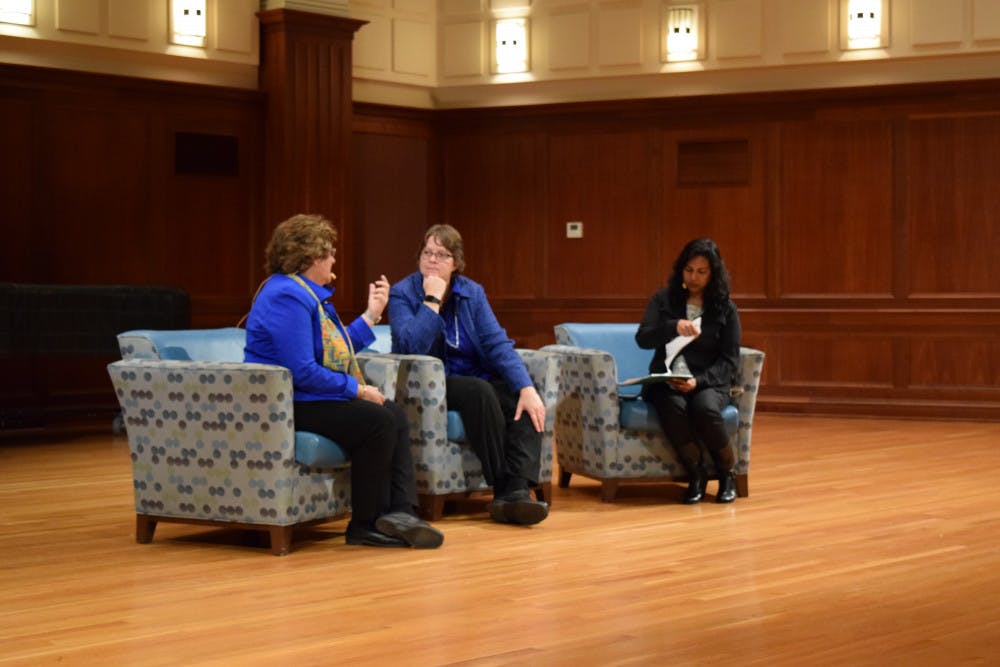By John McCarthy
Correspondent
A lesson on what it’s like to be a woman in the technology industry and the importance of a diverse workplace were among several important topics discussed at the Brown Bag lecture on Friday, Nov. 11.
The panel comprised Sharon Blanton, CIO and vice president of Information Technology at the College, Associate Professor and Chair of the computer science department Monisha Pulimood and Vice President of Intel Bev Crair. The speakers spoke often of gender discrimination in the workplace.
Throughout the average student’s first 21 years of life, they know the measure of success as a number or letter on an assignment. As far as work goes, however, the measures of success are vastly different and ambiguous.

“Nobody’s going to tell you what to do,” Crair said. She explained how the workplace is unstructured compared to school.
The panelists agreed that it is important to get experience through mentoring and an internship that fits your interests and ideas.
“Take the time to talk to people about what they do,” Blanton said. “Figure out the right combination of enjoyment and skill.”
Speakers also highlighted the importance of workplace diversity, as it gives varying ideas a chance to be heard.
“It’s about people who think differently coming together to make a better solution,” Blanton said. “Our vision is that smart computing is going to reach everyone on Earth.”
Each panelist made a point that different ideas are nearly impossible to come across when a group contains only people with similar backgrounds and lifestyles.
During the panel, Crair and Blanton shared similar stories on a gender bias they found in the workplace. Both panelists applied for positions where they were competing against a male candidate. The work and education experience was equal — gender was the only quality that separated the two candidates. In both cases, the male candidate was awarded the position.
In Blanton’s case, she was actually recommended to mentor her male competitor and advise him on what he should do to perform well. In Crair’s case, she was offered a different position at the same company. This led to the discussion on an important topic: going into a workplace that fits one’s standards and interests.
In both cases, Crair and Blanton left the companies in which they originally applied. Crair described these kinds of biases as “systematic discrimination” where the bias is based off of a structure of beliefs or practices.
Pulimood explained that this kind of bias can be recognized and dealt with in the classroom.
“You have to be overtly inclusive,” Pulimood said. She said the way to beat bias is to “behave with kindness, compassion and to keep an open heart.”







